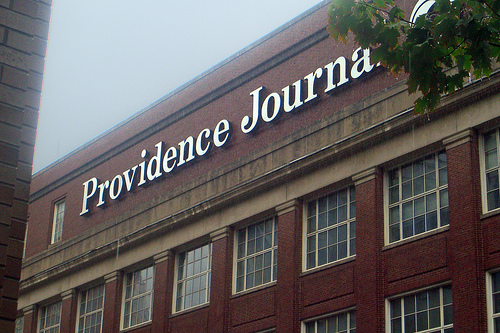 My first paying job as a journalist was at the Providence Phoenix. It was the NewPaper at the time, and I happened to walk into their offices a few days after they’d been bought out by the Boston Phoenix. My first newspaper lesson: timing is crucial.
My first paying job as a journalist was at the Providence Phoenix. It was the NewPaper at the time, and I happened to walk into their offices a few days after they’d been bought out by the Boston Phoenix. My first newspaper lesson: timing is crucial.
I’d been living in Providence for about a year and one of my first big assignments was to cover the 1990 governor’s race. Was I qualified, knowledgeable in the history and back rooms of Rhode Island’s politics? Nope. But I did the work, went to the press conferences, interviewed folks, and wrote my story. Then, Sunday morning, Charlie Bakst came out with the exact same story in the Providence Journal. Not word for word, of course, but the essential conclusions were the same. I spent the next 24 hours rewriting my story so that it said something completely different. Lesson 2: Journalism can dance very close to fiction; you pick your topic and your goal and write your story.
My favorite gig at the NewPaper was writing the “Urban Eye” column. Every week I wandered Rhode Island, looked for quirky things and wrote about them. I talked with Chris Morris at Antonelli’s Poultry, and Brandt Heckert at Pastiche. I talked with Bill Scambato about Yacht Club Soda, whose water comes from a mineral spring. Their factory store is conveniently located on Mineral Spring Ave. I met one of my best friends, Nora Forbes, who was the first person in Rhode Island to serve a frittata panini.
Decades later, I was walking around WaterPlace Park, when the woman I was seeing told me that she’d loved my stories, that she remembered them, and she’d been a big fan. I married her.
When The Phoenix first bought the NewPaper, they promised that they’d turn it into a paid publication, but they never did. Free is difficult to change. After a few years, I asked for a pay bump. Instead, my columns got cut. I left the NewPaper, and began writing fiction for real.
Lesson 3: Don’t ask for more money unless you’ve got leverage.
For a long number of years The Providence Phoenix offered an “alternative” view, but it had grown long in the tooth. Decades later, many of the writers were the same. Hardly cutting edge and alternative. There were long articles that questioned the establishment, but you still had to grab them at the liquor store or coffee shop. And then… The InterWeb. You know the rest of the story.
With the loss of The Providence Phoenix, and the dwindling of The Providence Journal, Rhode Island is being rapidly stripped of its public faces.
Yes, journalism exists online. There’s awesome writing here on RI Future. But nobody knows you’re reading it. Conversations about digital news aren’t invisible, but they’re often siloed until they break out into the physical world.
With a Luciferian ex-mayor in danger of victory, with a state government led by a “representative” who was never elected by the general population, Rhode Island needs public tangible voices that will break through the walls of lies and deception and misinformation.
The Providence Phoenix was a voice that worked to expose injustice. It showcased local and national music and theater and film. It will be missed.





